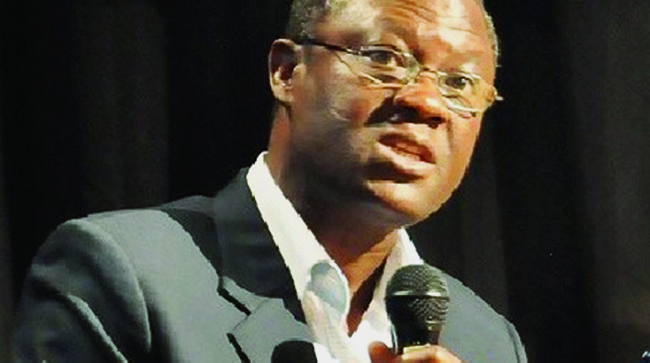
World Bank leads search for funds to develop Pwalugu Dam
THE World Bank is leading three state institutions, including the Savannah Accelerated Development Authority (SADA), to source for funds to develop the Pwalugu Dam in the Upper East Region into a multipurpose facility that can generate electricity, control flooding and irrigate some 20,000 hectares of land.
Advertisement
Earlier this year, the bank, together with the SADA, the Volta River Authority (VRA) and the Ghana Youth Employment and Development Agency (GYEEDA) commenced a financial feasibility study into the project that is expected to pave the way for actual work to begin.
The development of the dam is one of the turkey projects under SADA’s master plan, a medium term development agenda that the authority is using to transform the zone into an investor destination.
The Chief Executive Officer (CEO) of SADA, Mr Charles A. Abugre, said in a media interview that the feasibility study was to explore the sources of funding for the development of the dam into a multi-purpose dam.
The dam is a strategic infrastructure and its successful construction is expected to unlock the agricultural potential of the savanna zone, including managing the perennial flood menace in the area.
“When we complete it, the irrigation part will be able to grow all the tomatoes we need to make it viable for Pwalugu Tomato Factory to open again,” he stated.
{loadmodule mod_banners,Nativead1}
Floods
Floods normally occur in the Upper East Region when the Bagre Dam in the Burkina Faso part of the White Volta spills its waters.
The annual run-off water in the SADA Zone is estimated to exceed 40 million cubic metres, most of which is normally lost to the sea, evaporates or causes sheet erosion.
The dam, therefore, is to re-channel this water and store it for various uses, including irrigating some 20,000 hectares of land.
“As we speak, Tamale is flooded. Bimbilla is flooded and by September, Nasia Valley will also be flooded. What does it tell us,” Mr Abugre, who is presiding over the transformation of SADA, said in the interview.
“It tells us that there is a lot of water in the area yet by November, these places will be as dry as a desert.”
“The dam, therefore, is a simple strategy to harness the flood waters and manage those waters across the place for irrigation during the dry season,” he added.
Developing of northern Ghana
Mr Abugre also emphasised the need to develop the northern sector of the country, since its continuous underdevelopment was undermining the gross domestic product (GDP) growth potential of the country.
“We became a middle income country because we discovered oil and repriced our GDP but the northern sector of the country falls under least developed countries status similar to Niger,” he said.
By leaving the northern part underdeveloped, Mr Abugre said the country was undermining its own growth because it was not growing the entire economy.
“Secondly, you are undermining our social development pace if you do not pay attention to the economic development potentials of the entire country and thirdly you are sowing a seed for long-term conflict and tension as we see in northern Kenya, northern Uganda, northern Nigeria and northern Ivory Coast,” he added.
He said these long-term problems would all be rooted in unemployment, poverty and desperation, which would come as a result of the rapidly growing youth.
“Northern Ghana has fantastic resources and we should, therefore, leverage that to develop the area,” he said.
Why I joined SADA
Responding to questions on why he took up the SADA job, the CEO said: “I knew SADA had gone through major reputation damages and crises.”
“Coming was a big decision for me because I had also just agreed to take a job at the UN Secretary-General’s office but I felt this was the right time to make my contribution to the country,” he said.
In his current capacity, Mr Abugre said “my job is to ensure that we lay the grounds for transforming Northern Ghana and there are three elements to this.”
“You have to plan properly. If you plan properly and you enforce the plan, things will change and so we started the work of organising and planning the savannah zone for industrial transformation similar to the way we did it in both Rwanda and Ethiopia,” he added.
Mr Abugre had earlier worked in Rwanda and Ethiopia, where he was a key advisor to the presidents of the countries.
He describes himself as someone Rwandan’s president “bounces issues with.”




